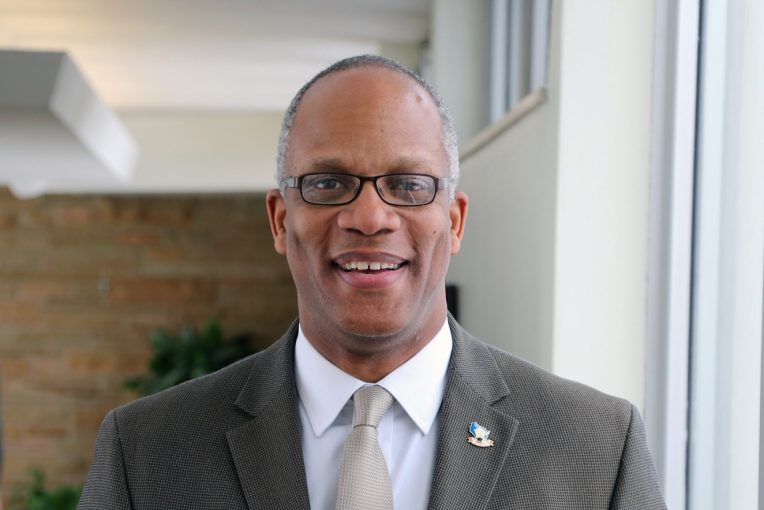Dr. Kenneth Harris Jr. ’84 is an alumnus who has excelled in broadcasting since graduating from Illinois State University and the School of Communication with a Bachelor of Science in mass communication. From there, he obtained a Bachelor of Arts in criminal justice management and a MBA in finance and risk management from Concordia University in Wisconsin, and he earned a Ph.D. in leadership studies from Marian University.
During his time at Illinois State, Harris gained radio experience at WZND, WGLT, and WJBC in Bloomington on weekends. After his time in Normal, he worked at WGN Radio in Chicago as a producer. As the years followed, he dabbled in freelance radio and TV for Warner Brothers, 60 Minutes, and Black Entertainment TV. He made the move to Milwaukee, where he currently resides, to pursue a career as a police officer, retiring as a police lieutenant in 2017, but his love for radio stayed with him.
“Illinois State put radio in my blood,” Harris said. Currently, he is the afternoon on-air host at FM 101.7 The Truth, “an audio platform that embraces Milwaukee’s Black community,” the station’s website explains.
Harris was approached by a friend about an all-Black talk radio station in response to George Floyd’s murder and decided to add his name as a contender. After a series of interviews, Harris was offered a position. This is where he met his fellow talents who also happened to be Illinois State alumni.
“There was this theme of how Illinois State really trained people over the years to be able to stand out in the radio community,” Harris said.
He and fellow radio talents, Michael Spaulding ’11 and John Mercure ’89, are all graduates of Illinois State’s mass communication program. They all work for Good Karma Brands at sister stations in Milwaukee.
Harris said the death of George Floyd shed a light on the void for Black voices. He tries to stay local with the people he brings on air and says his most memorable interviews were with Dr. Jill Underly, elected state superintendent of Public Instruction in Wisconsin.
Talking about how The Truth has changed the community, Harris mentioned his involvement with the organization 100 Black Men of America.
“It’s an international organization for mentoring. The slogan is ‘What they see is what they’ll be,’” he said.
Harris wants his station to reflect what the community wants to see and what it needs to see. For example, he’s received feedback from a listener who works as a driver.
“He said said he’d never heard ‘people like me talk about things that affect me directly.’” Harris said, “That one comment made the entire nine months worth it. It’s one of the most valuable parts of doing this.”
In the future, Harris wants The Truth to get closer to interviewing Hollywood and TV celebrities to bring them closer to people.
During his time at Illinois State, Harris said his more memorable teachers included Dr. Dwight Brooks in the radio department and Dr. Bill Semlak. Harris said they helped him understand exactly what communication was and the importance of knowing you are responsible for what you say and what you do when broadcasting.
He learned that it’s also important to understand the U.S. Constitution and its First Amendment. He recalls taking a course on privacy, which revealed the importance of knowing how far to go, how far to push, and when to leave things alone.
His program is unique, and he brings decades of experience most people don’t have. Harris offers this advice to people entering the field: “Be a journalist, go back to that inverted pyramid, go back to being unbiased, as unbiased as you possibly can, and report the news.”

